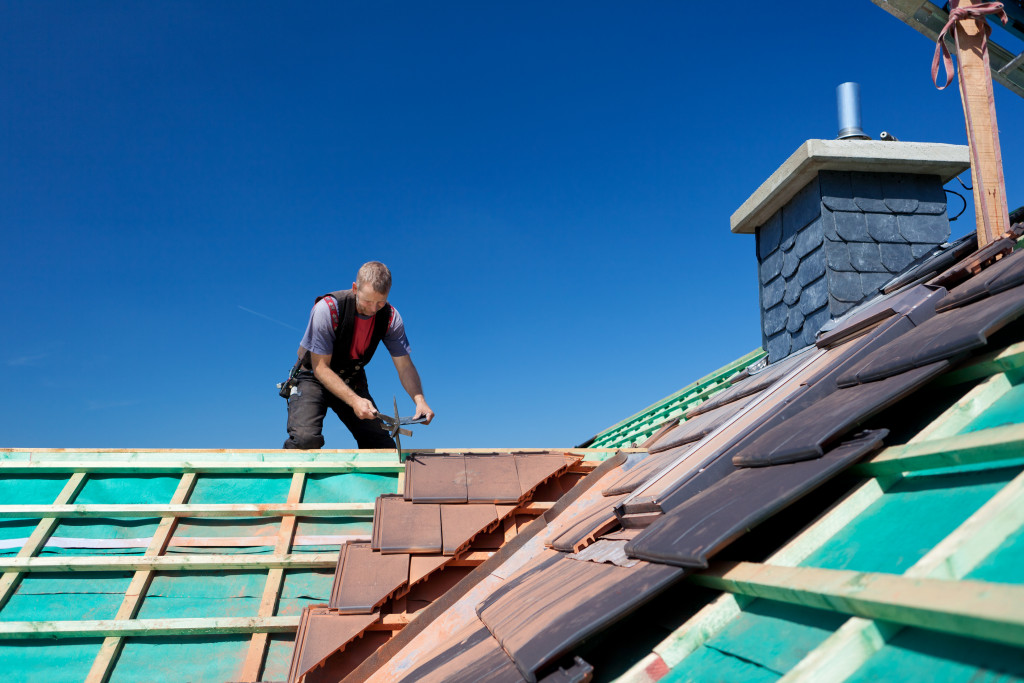Many people do not realize that their home is susceptible to the elements. Only a few take the necessary steps to protect themselves and their belongings from heat, rain, snow, wind, and other weather-related events.
A common reason for this is that people are misinformed. They believe their home is perfect for weather protection, or they think they cannot afford the necessary changes and additions.
Anyone can take many weatherproofing steps at a meager cost and with minimal effort. This article will focus on some of these preventive measures you can take to protect your home and yourself from potential damage caused by extreme weather conditions.

Ventilation
When the weather is too hot, there can be a buildup of heat in your home. The easiest way to combat this concern is by opening your windows and allowing cross ventilation.
However, do not forget that it is crucial to shut these windows when you leave for an extended period or when the temperature gets cold; otherwise, you will come home to a cold house.
If you find it difficult or impossible to open your windows during cooler weather, consider installing ceiling fans in rooms that are hard to reach. Ceiling fans will provide extra ventilation without using your precious energy.
Insulation
One of the most effective measures you can take is adding insulation around your home and to your attic. You can purchase insulation from most hardware and home renovation stores. Be sure that the insulation you are buying is meant for hot or cold climates; it will help keep heat in during cooler months and cool air during warmer months.
If you do not want to install insulation yourself, consider contacting a contractor to come and measure, as well as install, insulation for you.
Roofing
A tile or metal roof is one of the most efficient types of roofs you can have installed on your home.
Tile and metal are very durable materials to protect your home from heavy rainfall, harsh winds, hail, falling debris, and even lighting. They are also fire-resistant.
However, roofs made of plastic materials are also known to be one of the best types of roofs when protecting against the elements. That’s why many polycarbonate sheet suppliers are gaining in popularity. Aside from their durability and fire-resistant features, plastic roofs can also withstand strong winds and hail.
Windows and Doors
Be sure that your windows are in good shape before the winter approaches. Your windows will need to be in good working order for any weatherproofing measure to work effectively.
You can help prevent air leaks around door thresholds by using caulk to seal cracks or openings. You can also install weather stripping around doors and windows for added insulation and to help minimize energy loss.
Paint
When you paint your home’s exterior, do not forget about the doors and windows. If you have painted your house a dark color in the past, consider painting it a lighter color. Doing so will reflect more sunlight and keep your home cooler during the warmer months.
Waterproof and heat-resistant paints are another thing to consider when painting your home’s exterior. These types of paint are ideal for a long-lasting finish, even during a hot or humid climate.
Suppose you have lead-based paint on your home’s exterior. In that case, it is essential to contact the local water authority for advice and information about removing it safely without disturbing the surrounding environment.
Decks
If you have a deck that does not seem to protect your property from rain, products are available for this purpose. You can purchase roofing materials that expand and contract to fit along with the changing temperature. These materials are very inexpensive and will not require much effort to install yourself.
You can also use caulk or weather-resistant paint to waterproof your deck; these too are usually low cost and easily installed by anyone.
Fences
A fence is a simple way to secure your property from intruders and keep it safe from weather conditions. It will block out debris that might fall on your roof during heavy storms; it will keep animals and burglars away, and if your fence is made of metal, you will know that it is fireproof.
If you are thinking about installing a fence on your property, make sure you get one that fits the style and décor of your home. If possible, try to get a wrought-iron or black steel fence; these materials blend in well with most homes and will help protect your home from the weather.
Be sure to take the necessary precautions to protect your home against bad weather. You can also conduct your research and find what works best for your home when it comes to weatherproofing.

